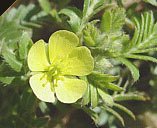Tribulus Terrestris is a vine plant that grows in moderate and tropical climates in the United States, Mexico, Eastern Europe, India and China. 1
2. What does it do and what scientific studies give evidence to support this?
The Tribulus Terrestris plant has a long history of use in traditional medicine systems2 and has long been used to treat a variety of serious and non-serious medical conditions.
Traditional medicine systems from around the world have used the Tribulus Terrestris plant to boost energy levels, to relieve depression, to treat impotence and infertility in men and women, and to boost vigor and strength. 
Because of the plants long history of use, its excellent safety record and its reputed benefits, athletes have experimented with Tribulus Terrestris extract dietary supplements to boost testosterone levels, to speed fat loss, to enhance strength, to enhance endurance and to boost muscle mass, muscle tone and overall athletic performance.
Although the pharmacodynamics of Tribulus Terrestris have not been established in human subjects, Tribulus is thought to support healthy hormone profile by boosting testosterone levels via stimulation of the anterior pituitary gland. This stimulation is thought to promote the production and secretion of Leutinizing Hormone (LH)3, which can lead to increases in unbound, free-testosterone levels.
Tribulus Terrestris contains steroidal saponins, alkaloids, and flavanoids4, but it is the protodioscins content of Tribulus Terrestris that is believed to be responsible for its apparent ability to boost testosterone levels and support health hormone profile function. Indeed, research has shown that Tribulus Terrestris extract, standardized for 20% protodioscins was effective at stimulating testosterone increases in study subjects. 5, 6
In addition to stimulating LH and possibly increasing testosterone levels in some subjects, Tribulus Terrestris may be an effective treatment for male and female impotence, as well as promoting healthy blood pressure8 and healthy cholesterol profile.1
It has been commonly believed that Tribulus Terrestris treats impotence symptoms by effecting hormone profile only - i.e. stimulating increases in free-testosterone via LH secretion - but its role in maintaining healthy blood pressure may help to facilitate the flow of oxygenated blood to sexual organs, thereby improving function. Tribulus may thus work to treat impotence and its symptoms in several ways.
3. Who may benefit from using this dietary supplement?
All persons in good health may benefit from using Tribulus Terrestris as a dietary supplement.
4. How much should be taken? Are there any side effects?
No dosing protocols have been established. Use as directed on the product label.
Tribulus Terrestris and its extracts may have a diuretic effect and may be contraindicated with other diuretic medications.
Human research has established that Tribulus Terrestris is safe and free of side-effects in healthy adults.9
The effects of a substance will vary from person to person because of genetic, age, sex and body composition differences.
Check with your physician prior to using any dietary supplement.
References
- J Ethnopharmacol. 2003 Apr;85(2-3):257-60. Tribulus terrestris: preliminary study of its diuretic and contractile effects and comparison with Zea mays. Al-Ali M, Wahbi S, Twaij H, Al-Badr A.
- Fitoterapia. 2003 Sep;74(6):583-91. Furostanol saponins from Tribulus terrestris. De Combarieu E, Fuzzati N, Lovati M, Mercalli E.
- J Am Coll Nutr. 2001 Oct;20(5):520-8. Endocrine and lipid responses to chronic androstenediol-herbal supplementation in 30 to 58 year old men. Brown GA, Vukovich MD, Martini ER, Kohut ML, Franke WD, Jackson DA, King DS.
- J Nat Prod. 2000 Dec;63(12):1699-701. New steroidal glycosides from the fruits of Tribulus terrestris. Bedir E, Khan IA.
- Int J Sport Nutr Exerc Metab. 2000 Jun;10(2):208-15. The effects of Tribulus terrestris on body composition and exercise performance in resistance-trained males. Antonio J, Uelmen J, Rodriguez R, Earnest C.
- J Pharm Sci. 2001 Nov;90(11):1752-8. Determination of steroidal saponins in Tribulus terrestris by reversed-phase high-performance liquid chromatography and evaporative light scattering detection. Ganzera M, Bedir E, Khan IA.
- Life Sci. 2002 Aug 9;71(12):1385-96. Aphrodisiac properties of Tribulus Terrestris extract (Protodioscin) in normal and castrated rats. Gauthaman K, Adaikan PG, Prasad RN.
- Life Sci. 2003 Oct 24;73(23):2963-71. Study of antihypertensive mechanism of Tribulus terrestris in 2K1C hypertensive rats: role of tissue ACE activity. Sharifi AM, Darabi R, Akbarloo N.
- Zhong Xi Yi Jie He Za Zhi. 1990 Feb;10(2):85-7, 68. [406 cases of angina pectoris in coronary heart disease treated with saponin of Tribulus terrestris] [Article in Chinese] Wang B, Ma L, Liu T.

